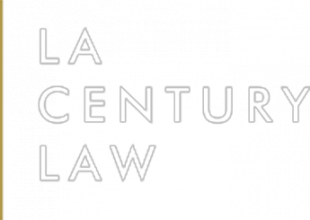
Damages In a California Personal Injury Case
If you have been injured in an accident, you may be wondering what types of damages you can recover. Damages are usually monetary compensation awarded to a plaintiff in a personal injury case.
There are many different types of damages that can be awarded, depending on the circumstances of the accident. This post will discuss some of the most common damages awarded in California personal injury cases.
If you would like more information about damages in a California personal injury case, please get in touch with our office for a free consultation. We would be happy to discuss your case with you and answer any questions you may have.
What is Considered A Personal injury?
In California, a personal injury can be defined as an injury that is physical, emotional, or psychological. This includes injuries resulting from negligence on the part of another individual or entity.
For example, if you are involved in a car accident that was caused by the other driver’s recklessness, you may be able to file a personal injury claim against that driver. Similarly, if you suffer an injury at work due to your employer’s failure to provide a safe working environment, you may also have grounds for a personal injury lawsuit.
In general, any time you suffer an injury due to someone else’s carelessness or wrongdoing, you may be able to seek compensation through a personal injury claim.
Types of Damages in a California Personal Injury Lawsuit
In a California personal injury lawsuit, you may be able to recover two types of damages: compensatory damages and punitive damages.
Compensatory Damages
Compensatory damages are intended to make you “whole” again by putting you in the position you would have been in if the accident had never happened.
There are two types of compensatory damages: economic and noneconomic.
- Economic damages are quantifiable losses such as medical bills, property damage, and lost wages.
- Noneconomic damages are more difficult to quantify and may include pain and suffering, loss of consortium, and loss of enjoyment of life.
Medical treatment damages
Medical treatment damages in a California personal injury case reimburse the injured person for paid medical bills and projected future medical expenses. This includes hospitalization, surgery, ambulance transportation, doctors’ visits, prescriptions, physical therapy, and any other necessary medical treatment related to the injuries suffered in the accident.
To recover medical treatment damages, you must have receipts or other documentation verifying the cost of the medical expenses. If you do not have insurance, you may also be able to recover the amount you would have had to pay for health insurance premiums. Medical treatment damages can also include compensation for pain and suffering, mental anguish, and loss of enjoyment of life.
Income loss damages
Income loss damages are intended to compensate an injury victim for the wages they’ve lost due to their injuries. This includes both past, and future income that would have been earned had the victim not been injured.
To recover these damages, you will need to provide evidence of past earnings, along with evidence of your projected future earnings. This can be difficult to do in some cases, which is why it’s important to have an experienced personal injury attorney on your side.
Damages awarded for property damage
Property damage can include everything from the cost of repairing a damaged vehicle to the value of lost belongings. In many cases, property damage is the easiest kind of damage to calculate, but there are still some important things to consider.
The first thing to consider is the replacement value of the property. This is what it would cost to replace the property with an identical or similar item. In some cases, this may be straightforward, such as with a damaged car. But in other cases, it may be more difficult to determine, such as with a piece of jewelry with sentimental value. It’s important to get an accurate estimate of the replacement value, as this will be the basis for any insurance claims or legal action.
Another important factor is the loss of use. This covers things like the cost of renting a replacement car while yours is being repaired. It can also include the value of the lost business if your business premises were damaged.
Emotional distress damages
In a California personal injury case, damages for emotional distress can be based on either the plaintiff’s physical injuries or the plaintiff’s mental anguish. To recover damages for physical injuries, you must prove that you suffered some physical injury due to the defendant’s negligence. This can include things like bruises, cuts, or broken bones.
To recover damages for mental anguish, you must prove that the defendant’s negligence caused you to experience anxiety, depression, fear, or other similar symptoms. Damages for emotional distress are usually awarded in addition to other damages, such as medical expenses or lost wages.
Loss of enjoyment damages
Loss of enjoyment damages are intended to compensate the plaintiff for the loss of enjoyment of life that resulted from the accident. This can include physical pain and suffering, emotional distress, and diminished quality of life.
In determining the amount of loss of enjoyment damages, the court will consider the severity of the injury, the expected duration of the recovery period, and any permanent effects of the injury. These damages can be significant in cases where the injury is particularly severe or results in a long-term or permanent disability.
Punitive Damages
Punitive damages are designed to punish wrongdoers and discourage others from engaging in similar conduct. To recover punitive damages, you must prove that the defendant’s conduct was intentional or showed a reckless disregard for your safety.
Punitive damages are available in some cases to punish the wrongdoer and deter others from engaging in similar conduct. Generally, punitive damages are not available for mere negligence but only for intentional misconduct or if the defendant’s actions were so reckless that they showed a complete disregard for the safety of others.
In addition, you must usually show that you suffered actual harm. But in some cases, such as when the defendant’s conduct was particularly egregious, punitive damages may be awarded even if there was no actual harm.
California law requires that the court consider three factors to determine whether or not a punitive damage award claim is valid.
- Reprehensibility of the defendant’s conduct
- The defendant’s financial condition
- The actual harm suffered by the plaintiff or the amount of compensatory damages awarded
Damage Caps in California Lawsuits
In California, there are no damage caps for personal injury lawsuits. This means that plaintiffs can sue for any damages they have incurred. The only exception to this rule is in medical malpractice cases, where damages are capped at $250,000 for noneconomic damages. This means that plaintiffs can still recover damages for pain and suffering, but they will not be able to recover any additional damages beyond the $250,000 cap.
Damage caps are designed to protect defendants from excessive jury verdicts, but they can also limit the amount of compensation that plaintiffs can receive.
Frequently Asked Questions
What’s the filing deadline for personal injury lawsuits in California?
In California, the filing deadline for personal injury lawsuits is generally two years from the accident date. However, the deadline can be extended if the injured person is a minor or suffers from an incurable disease. If the defendant has fled the state, the deadline may be extended to six years from the accident date.
What is California’s shared fault law?
California follows a “pure” comparative fault rule when it comes to assigning blame in an accident. Under this rule, each party is only responsible for the percentage of damages attributable to their negligence. For example, if Party A is determined to be 60% at fault for an accident, they will only be liable for 60% of the damages sustained by Party B.
Should I hire a lawyer?
If the fault is disputed or the other party does not have insurance, you may need to hire a lawyer to help you recover damages. Additionally, if your injuries are serious, you may also want to hire a lawyer to ensure that you receive full and fair compensation. Ultimately, the decision of whether or not to hire a lawyer is one that only you can make. However, consulting with an experienced personal injury attorney can help you better understand your legal rights and options.
Let LA Century Law Help You
If you have been injured in an accident, it is important to speak with an experienced personal injury lawyer as soon as possible. At LA Century Law, we can help you understand your legal options and guide you through the process of filing a lawsuit. We are committed to fighting for the best outcome for our clients and will work tirelessly to get you the compensation you deserve. Contact us today for a free consultation.








 Available 24/7
Available 24/7